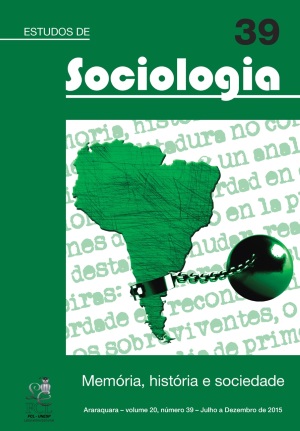Memória dos anos de chumbo nas cidades brasileiras
Palavras-chave:
Lugar de memória, Ditadura civil militar, Cidades,Resumo
O presente artigo analisa as relações entre memória, história e sociedade no espaço urbano brasileiro, em especial as disputas em torno de lugares de memória referidos à Ditadura Civil-Militar (1964-1985). A dimensão política da prática de se nomear espaços simbólicos de enaltecimento à ditadura civil-militar é o tema central do presente trabalho. As cidades brasileiras, onde se desenvolveu a maior parte das ações de resistência, guardam marcas da história recente da Ditadura. Com o fim do regime de exceção iniciado em 1964, permaneceu o que se chamou de feridas históricas, entre as quais a manutenção das marcas do regime autoritário em nomes de ruas, estabelecimentos e logradouros públicos. Passados mais de um quarto de século do final do regime autoritário, ainda permanecem designações de estátuas, ruas, praças e escolas públicas, e outros espaços públicos e privados que homenageiam integrantes do governo militar, torturadores e colaboradores do regime.
Downloads
Downloads
Publicado
Como Citar
Edição
Seção
Licença

À revista Estudos de Sociologia ficam reservados os direitos autorais pertinentes a todos os artigos nela publicados.
Os artigos publicados e as referências citadas na revista Estudos de Sociologia são de inteira responsabilidade de seus autores.
A Estudos de Socilogia utiliza a licença https://creativecommons.org/licenses/by/4.0/ (CC BY), que permite o compartilhamento do artigo com o reconhecimento da autoria.



